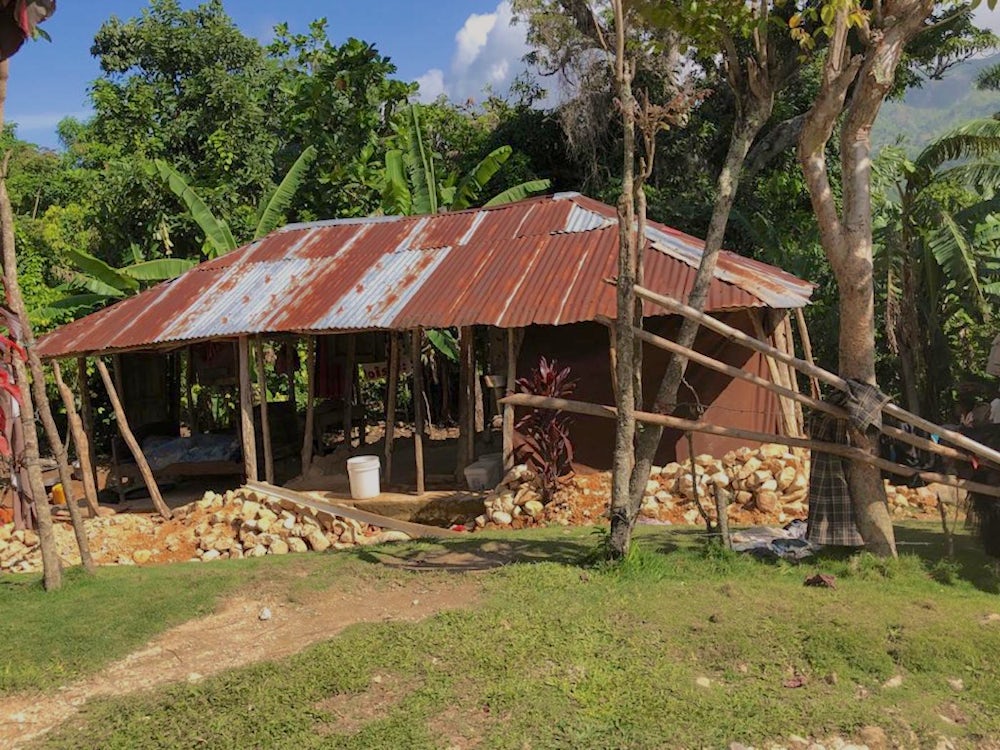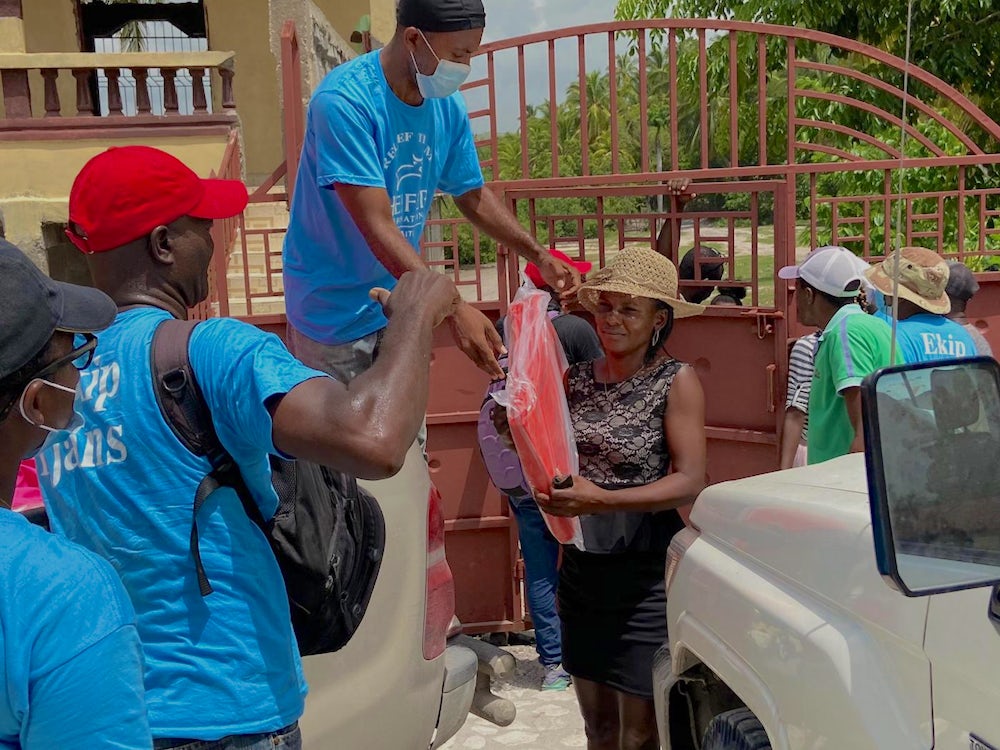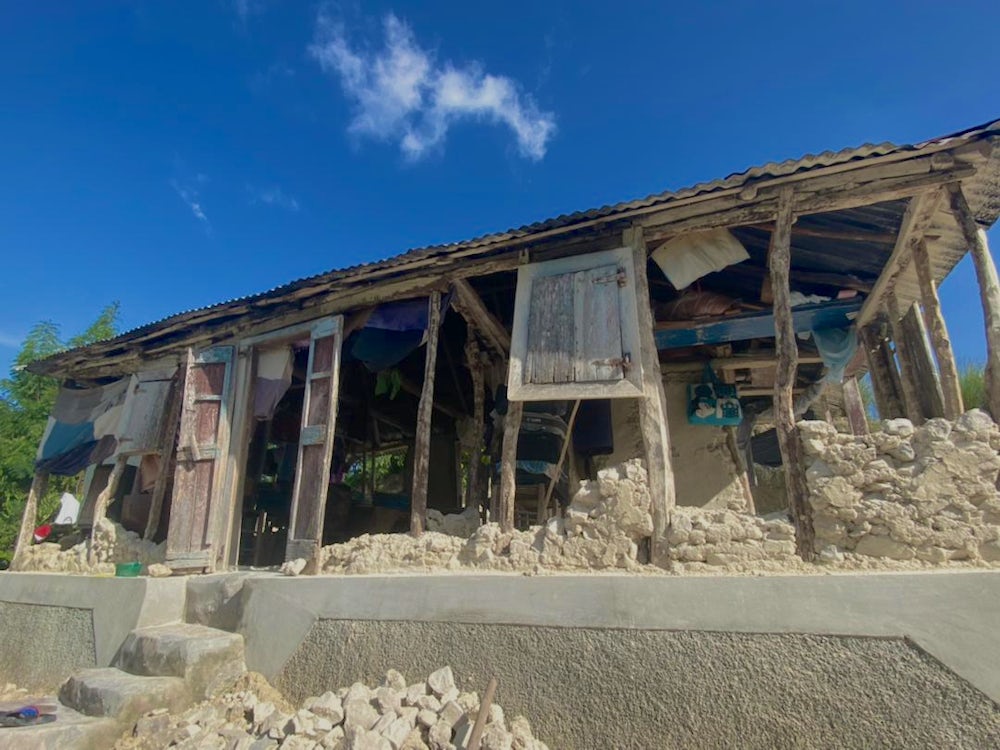More than two weeks after the devastating Aug. 14 earthquake that struck near Haiti’s Tiburon Peninsula, affected communities are still struggling to cope. The 7.2 magnitude quake claimed the lives of at least 2,207 people. Hundreds more are missing, presumed to have been trapped beneath the rubble.
The quake also destroyed buildings, roads and other essential infrastructure, like water systems.

Strong aftershocks of this massive geological event are still being felt, complicating the relief effort, and delaying the delivery of much needed food, water, medicine and other necessities.
In the worst affected areas, including Maniche, Camp-Perrin and Cavaillon, hospitals and clinics have moved their operations outside, and every available protected space is being used to treat the sick and injured. Some of the worst aftershocks measure upward of 5.8 in magnitude — strong enough to cause casualties and deepen the cracks in already condemned homes, schools, churches and other buildings.
With its long history of political, economic and social unrest, the real fractures are systemic and much harder to address than those caused by last week’s earthquake.
Heifer Senior Director of the Haiti Resilience Program, Hervil Cherubin, has been leading Heifer’s operations in the country and sourcing and distributing much needed supplies like water, sanitation kits and plastic tarps that can keep out the worst of the elements. He noted that while rural communities have been able to save most of their crops and animals, in many cases their homes were the only asset they had, and finding shelter has become a priority for affected families.

“This is the rainy season in Haiti, and there are no tents here,” Cherubin said. “We have finally been able to secure 1,600 large tarps, so that people are able to wrap their houses with these tarps to protect their families.”
Cherubin noted the worsening security situation has become the biggest threat to the relief operation. “So far, this response has been very different than the one we have seen before,” he said.
Delivering supplies to the rural communities who need it most has required collaboration with several organizations, including the United Nations, which has negotiated with the police department and is able to provide secure convoys to the outlying areas hardest hit by the earthquake.

“The relief team spent a lot of time strategizing about how to deliver the help to the affected communities,” Cherubin said. “This has become the most challenging concern of anyone involved in this emergency response.”
You can help families find the shelter and food needed to weather these crises by making a gift to Heifer today. Through Heifer’s disaster rehabilitation fund, 100% of funds raised will go directly to Heifer families to provide urgent necessities.